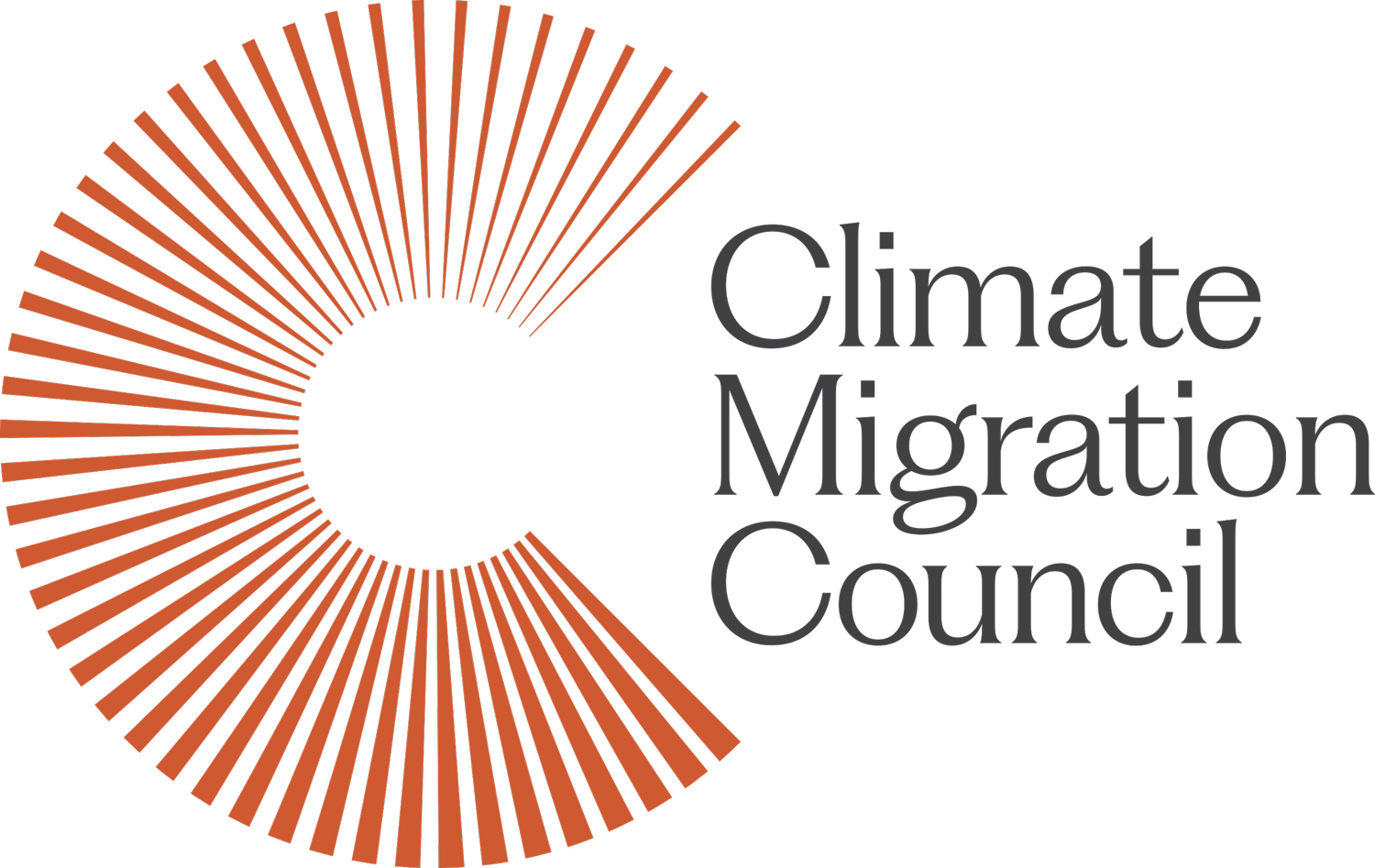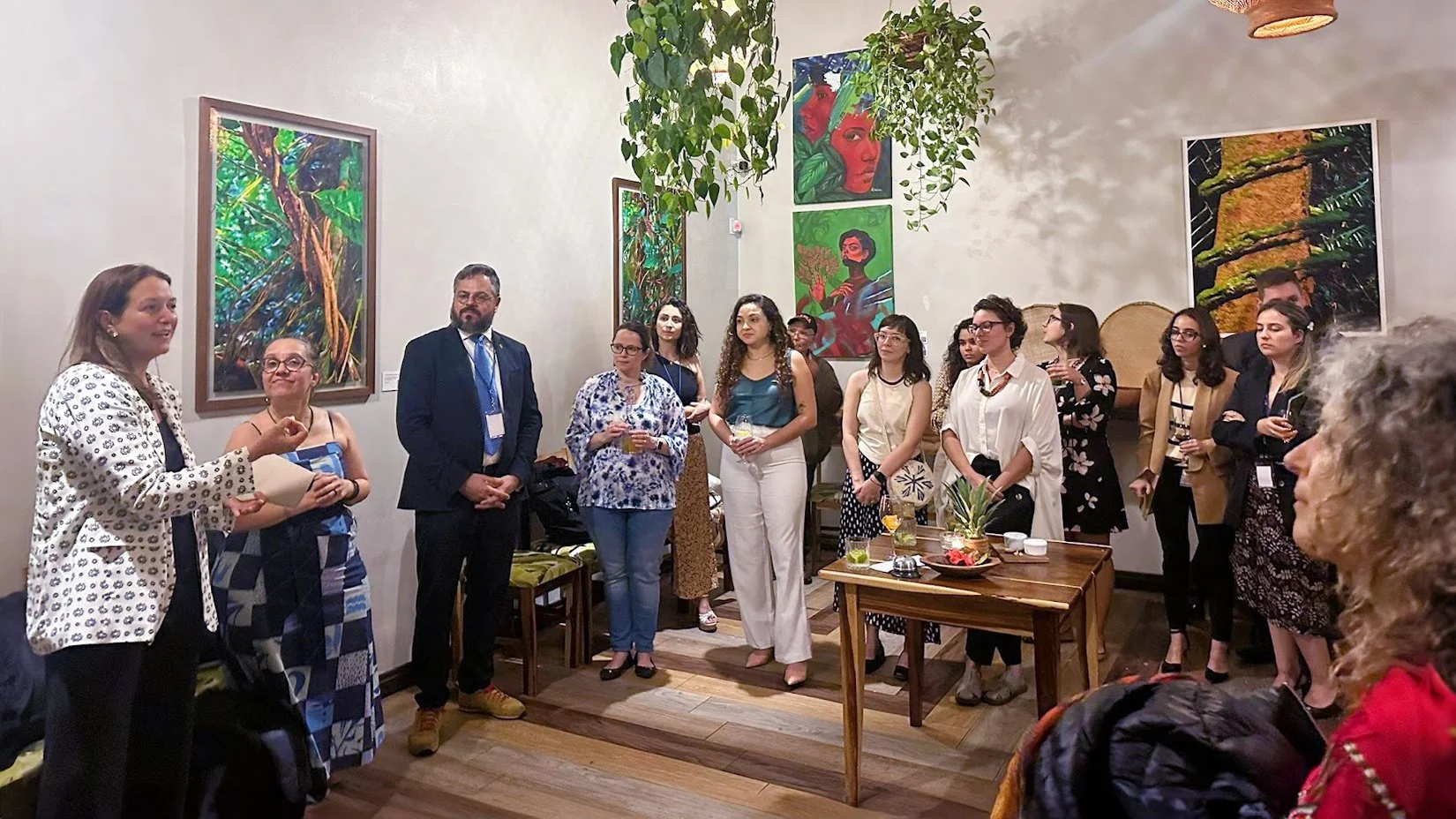Climate Migration Council Brings Together Leaders to Highlight Human Mobility within the Inter-American Court’s Advisory Opinion on the Climate Emergency and Human Rights
Manaus, Brazil – Last month, the Climate Migration Council co-hosted an event on the sidelines of the Inter-American Court of Human Rights (IACtHR) hearings on the Climate Emergency. The reception brought together leaders from international NGOs and government entities to exchange insights and dialogue on the relevance of human mobility within the climate crisis.
In partnership with CEJIL, the Global Strategic Litigation Council for Refugee Rights, the International Organization for Migration (IOM), RESAMA, and the Center for Gender and Refugee Studies (CGRS), the Climate Migration Council led a conversation that emphasized the importance of averting, minimizing, and addressing displacement in the context of the growing climate crisis, which has recently displaced thousands of people in Brazil.
Attendees included Pedro da Silveira Montenegro from the Foreign Ministry of Brazil, representatives from IOM and the United Nations High Commissioner for Refugees (UNHCR), and individuals from human rights, Indigenous rights, and environmental rights non-governmental organizations from across the hemisphere.
The topic of climate mobility was prominently featured throughout the evening, as speakers including Climate Migration Council member Erika Pires Ramos, a researcher at the Latin American Observatory on Human Mobility, Climate Change and Disasters, Shana Tabak, Director of Immigration Strategy at Emerson Collective and advisor to the Climate Migration Council, and Manuel Marques Pereira, Climate Action Division, IOM, discussed the urgent need to address climate-induced displacement, whether forced or voluntary, internal or cross-border.
The gravity of the discussion and the need for action was underscored by the recent displacement of hundreds of thousands of Brazilians in the state of Rio Grande do Sul due to devastating flooding. During the reception, a mother of 7-month-old twins shared her harrowing experience of leaving her home during the flooding, not knowing if she would ever return. The impact of her testimony filled the room and further illustrated the urgent need for actionable climate solutions to aid vulnerable communities impacted by this global crisis.
“The recent flooding in Brazil’s Rio Grande do Sul has painfully confirmed the multiple impacts and losses of communities and more vulnerable groups in the context of the climate crisis and the urgent need for permanent and durable solutions,” remarked Erika Pires Ramos.
“By coming together and sharing our experiences, we can work toward building a future where resilience and adaptability are better integrated into our communities and in our public policies. The stories of displacement and struggle from Brazil remind us that addressing climate mobility is not just a regional concern but a global imperative. Only through collaborative and permanent efforts can we truly make a difference, which is why I'm so grateful for this opportunity to connect with fellow advocates and leaders who are focused on advancing more concerted efforts on mobility within the context of the climate crisis.”
With Brazil set to host COP30 in 2025, the timing of this event was particularly relevant as stakeholders had the unique opportunity to discuss the significance of advancing the Loss and Damages Fund to drive actionable solutions to human mobility. Brazil will continue to be at the center of climate action and human rights policy, as global leaders and policymakers continue to drive a unified effort toward meaningful change.
To learn more about the Climate Migration Council, visit www.climatemigrationcouncil.org. Writing a story about climate migration and looking for sources? Contact press@climatemigrationcouncil.org to get connected with a member of the Climate Migration Council.

